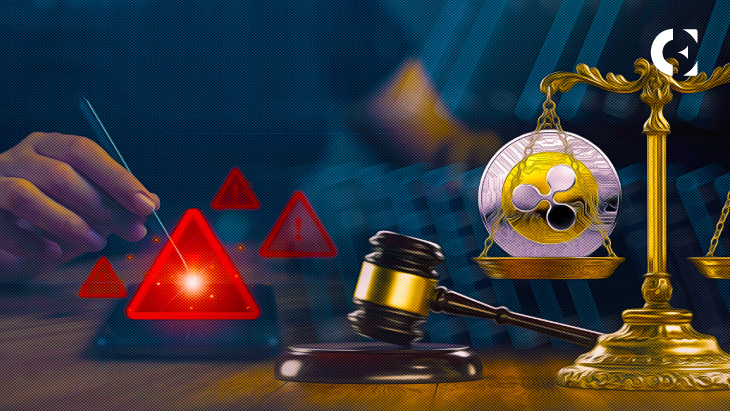- John E Deaton affirmed that the Ripple case is a major threat and danger to the whole crypto community.
- Deaton’s statement was in response to Perianne Boring’s revelations that the SEC-Ripple case could affect many companies.
- The XRP lawyer pointed out that the Section 4 Exemptions only apply to securities.
The prominent crypto attorney and XRP lawyer John E. Deaton posited that the prolonged SEC-Ripple case has posed a “major threat and danger” to the entire crypto space. Deaton’s pronouncement followed the revelations of Perianne Boring that the SEC-Ripple case could set a “legal precedent” impacting many other companies in the capital markets.
In a discussion with the crypto researcher Darren Moore, Perianne Boring, the founder of the Chamber of Digital Commerce, the trade association representing the blockchain industry, argued that the Ripple case is significant as it was the first incident of questioning the “secondary sales of assets”.
Deaton, in response to Boring’s comments, shared a chain of Twitter threads, pointing out the “intentional noise and distraction” included in the SEC’s allegation against Ripple:
The XRP advocate elaborated on the efforts he has been taking since the beginning of the SEC-Ripple case to convince others that the regulators were not only against Ripple but against the whole crypto industry. He quoted:
When the Ripple case was filed I spent a year trying to convince people that secondary sales were being implicated and were alleged to be securities in the case. I argued with dozens of people who claimed the SEC was only alleging securities related to Ripple’s sales of XRP.
Further, Deaton explained how others including the SEC lawyers characterized his concerns as overblown, relating it to Section 4 Exemptions which could apply to secondary sales. However, Deaton argued that the Section 4 exemptions “only apply to securities”.
Referring to the definition of “underwriter”, Deaton stated that an “underwriter is any person who has purchased from an issuer with a view to … the distribution of any security”, concluding that the Section 4 exemption “doesn’t apply”.
Since the Ripple case began, Deaton has been criticizing SEC’s allegations against Ripple. Recently, he pointed out the SEC’s “schizophrenic” defense in the Ripple case.
Disclaimer: The information presented in this article is for informational and educational purposes only. The article does not constitute financial advice or advice of any kind. Coin Edition is not responsible for any losses incurred as a result of the utilization of content, products, or services mentioned. Readers are advised to exercise caution before taking any action related to the company.










